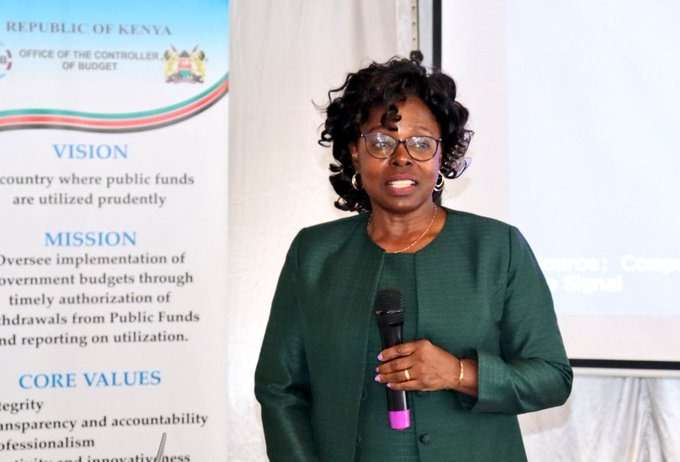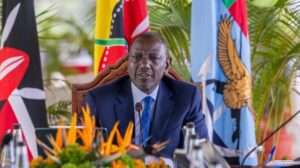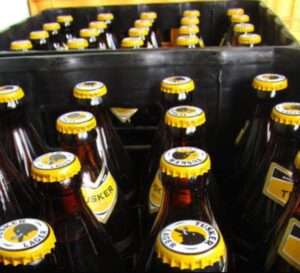
Controller of Budget Margaret Nyakango. Photo/courtesy.
Despite President William Ruto’s public commitment to enforce austerity measures, a new report from the Controller of Budget, Margaret Nyakango, reveals that State House continues to spend heavily on hospitality, travel, and allowances.
This revelation raises concerns over the administration’s dedication to cost-cutting measures, as the country faces economic challenges.
According to the report, “the State Department for Foreign Affairs and the State House recorded the highest recurrent expenditure of the revised gross budget at 100 per cent.”
Additionally, State House spent Sh963 million on the purchase of new vehicles and refurbishments of buildings. These figures, alongside other significant expenses by government ministries, departments, and agencies (MDAs), suggest that austerity measures may not be fully enforced.
Read: Murkomem Vows To Ensure Justice for Cheptegei
The report also noted that expenditures classified under “Other Expenses” amounted to Sh100.95 billion, representing 4 percent of the total gross recurrent expenditure.
In addition, State House spent Sh298 million on foreign travel, with hospitality costs surging to Sh1.168 billion by the end of the fiscal year.This near-complete budget utilization has sparked public concern over the administration’s spending habits.
Despite assurances from President Ruto to reduce operational expenditures in the government, including cutting costs on travel, hospitality, and vehicle purchases, the report indicates otherwise.
In June, President Ruto announced a series of austerity measures following the withdrawal of the Finance Bill 2024, after protests that left more than 60 people dead. During the announcement, the President emphasized the need for budget cuts.
He acknowledged that “the withdrawal of the Bill would result in a budget deficit, with no additional taxation mechanism to finance the Sh3.9 trillion budget for the upcoming financial year.”
“We will reduce the confidential vote, travel budget, hospitality, purchase of motor vehicles, renovations, and other expenditures,” Ruto said at the time, adding that operational expenditures in the three arms of government would be scaled down.
He further affirmed his administration’s resolve to tackle corruption and act in accordance with the will of the people.
“We must live within our means, respecting the very loud message that is coming from the people of Kenya.”
However, the latest financial disclosures cast doubt on the sincerity of these promises. As President Ruto’s administration continues to face mounting economic pressure, the recent revelations are expected to fuel further inquiries into government spending practices, particularly at State House.
The report highlights the significant gap between public statements and actual spending, intensifying scrutiny on the administration’s commitment to austerity.
With Kenyans calling for more transparency and accountability, the government’s spending practices will likely remain under the spotlight as the country navigates its economic challenges.






